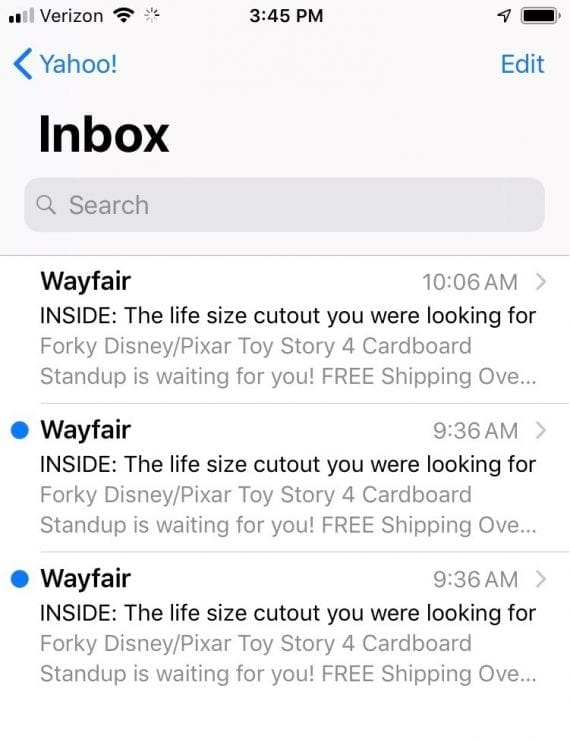A recent study concluded that online marketers viewed artificial intelligence as “the next big thing.” But AI is not new for email service providers. Email platforms have long recognized that AI can optimize opens and clicks while saving time and money.
In this post, I’ll address five ways that AI can improve your email program.
Send Time
Knowing the best time to send an email has always been a critical factor for success. Some retailers prefer sending when competitors are silent. Others do the opposite. They want their messages in the inbox alongside their competitors.
“Send time optimization” is an AI innovation. Many email service providers offer it, utilizing advanced algorithms that track when each subscriber is most likely to open, read, and click on a message. The providers then automatically send individual emails at that time.
Send time optimization typically includes the option to set parameters and rules. For example, a merchant with a short-term offer can override the algorithm to send the email by a certain time or date.
A/B Tests
Testing a subject line, offer, or creative has always been critical for email marketing. But setting up tests, interpreting the results, and taking the appropriate action can take hours of work.
To help, many email providers offer tools that apply A/B test results automatically. For example, say you set up a simple A/B test to see which subject line produces the best open rate. You establish a test group of 10 percent — 5 percent for each version. You then set the winning subject line (after, perhaps, six hours) to apply to the remaining 90 percent of subscribers.
Most email platforms allow senders to set testing rules, such as duration and the percentage to test. The platform then executes the overall deployment based on those rules. The process automatically optimizes every deployment.
Product Recommendations
One of the earliest examples of AI in ecommerce is the ability to generate personalized product recommendations (based, for instance, on purchase history or recently viewed products). Email providers have adopted this technology, too. The result is relevant suggestions for each recipient, translating to better open and click rates.
For example, I recently clicked on a Wayfair ad on Facebook, as the product interested me. I was impressed to see several emails in my inbox the next day that referenced that product.
The emails certainly captured my attention; I opened them. However, the AI process failed. I received three identical emails within 30 minutes. The lesson is that AI is powerful, but it requires human intervention to set rules, such as the frequency in a short timeframe.

Relevant product recommendations can drive revenue. But after clicking a Wayfair ad on Facebook, the author received three identical emails within 30 minutes.
Enhanced Frequency
Determining the correct frequency to send emails can be difficult. Subscribers have varying tolerances for the number of emails in a given period. Ideally, frequency is based on the behavior of each individual. The goal for marketers is to generate maximum revenue via email without producing unsubscribes.
Some providers, such as Salesforce Marketing Cloud, can analyze an individual’s open and click behavior, which, paired with purchase history and overall unsubscribes, can estimate the correct email frequency for that subscriber. Doing this manually would require hours of data collection and analysis. AI does it automatically.
Offers and Creatives
AI tools can help email marketers tailor communication to each subscriber. The primary revenue driver, however, is the offer and how it’s described.
Customizing offers around like-minded subscribers can increase conversions. But manually building those segments — with multiple versions of the offer and creative — can be daunting. AI tools can help determine which offer and creative to send to each subscriber based on her past email behavior.
To be sure, the strategy, offer, creative, and setup behind effective emails takes human effort and ability. AI tools can enhance those efforts — generating more conversions in less time.





